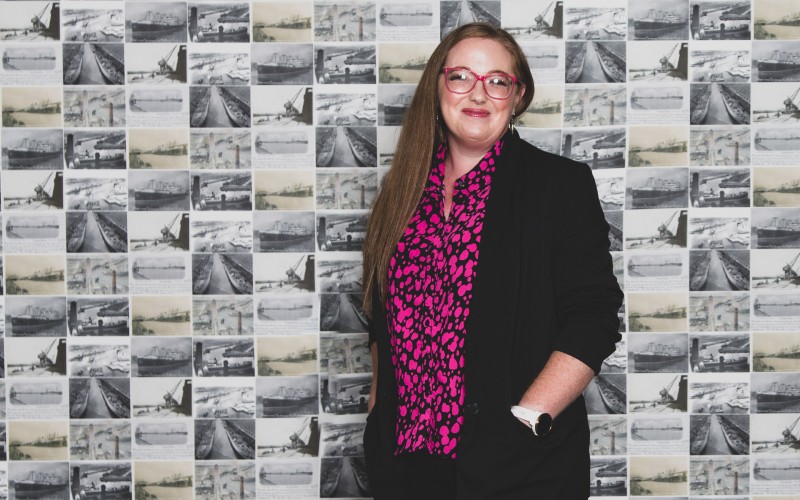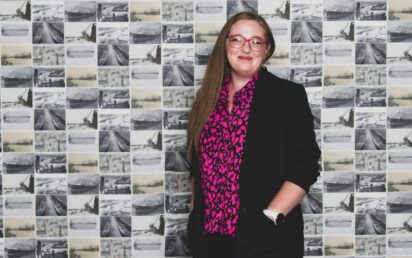A nurse who left the NHS after becoming frustrated by its “red tape, bureaucracy and politics” is tackling burnout in the tech sector with her startup.
Emma-Louise Fusari, a proud Scot who has been a registered as a nurse for two decades this year, worked in general practice with responsibility for running chronic disease management clinics and public health screening programmes.
However she left the Health Service in 2016. “I felt like I wasn’t making a blind bit of difference to the health outcomes of my patients,” she tells TechBlast. “I hated having so much knowledge and experience but not being able to use it.
“I was seeing people when it was too late – they already had diseases and I didn’t have enough time to educate and empower them to look after themselves. I was literally sticking plasters on and asking people to come back when they fell off.
“It’s sad to say, but I’m so glad I’m out of the NHS. The stories I hear from friends, colleagues and patients really still frustrate me. They make my blood boil.”
Fusari will join fellow health technology entrepreneurs on a BusinessCloud panel at pro-manchester’s HealthTech conference 2022 on Friday 9th December – click below to register, using the discount code BusinessCloud20 for 20% off the ticket price
HealthTech Conference 2022 – data innovation in medicine & healthcare
Sticking plaster
Fusari became an OFSTED-registered childminder but it didn’t take long for her to miss nursing. Intrigued by the rise in awareness of workplace wellbeing, she researched the topic and found that the ‘sticking plaster approach’ was also being used in the tech industry.
“Wellbeing initiatives are reactive, fluffy and unmeasured – and are never going to fix the root cause of issues,” she explains. “I believed – and still do – that I had the qualifications, knowledge and skills to make a huge difference to people and businesses.”
Fusari founded In-House Health, which uses a data-first approach to help businesses establish and eliminate the root cause of issues such as work-related stress and employee burnout.
“Nurses, startup founders and people working in tech are sadly used to the risks of burnout,” she continues. “I am a realist and, although I detest the hustle culture, you do have to work long hours and maintain a high-performance culture.
“The digital tech sector is not as glamorous an industry as it appears on the outside. If you work in tech you’re five times more likely to be depressed than the national average; two-thirds of the workforce are stressed, which is on a par with NHS workers; and more than a quarter of people [working in tech] have been formally diagnosed with a mental health condition caused by work.”
Measure, evaluate, transform, analyse
Based in HOST in Salford’s MediaCity, In-House Health has developed the M.E.T.A Wellbeing Audit and a 12-month M.E.T.A Programme. M.E.T.A is an acronym for a four-step process that enables In-House to ‘measure, evaluate, transform and analyse’ the state of health and wellbeing in an organisation.
“We collect employee health data through individual, confidential 45-minute health checks that assess all areas of health and wellbeing – physical, mental, financial wellbeing, lifestyle behaviours and workplace culture,” explains Fusari of the company’s current minimum viable product, a web application.
“We then use the data to create an anonymised workforce report that identifies the current risks to the people and to the business and provide education and training in the key problem areas specific to each organisation.
“Individuals are given their own advice and recommendations as well as providing support for the business from a strategic point of view.”
Founder of LegalTech with 75% female staff eyes further growth
Top 40 Northern Gamechanger
Fusari is currently the only full-time member of staff but has signed up two organisations as paid proof-of-concept for the 12-month programme, representing approximately 140 employees. Recently named as a ‘Top 40 Northern Gamechanger’ by business development consultancy Elevate in recognition of her purpose-driven enterprise, she is on a scalability programme with Innovate UK Edge North and looking at the next phase of its tech build.
“We’re bootstrapped so far, although at some time within the next 12 months I will need to look at funding options for further development and growth/scalability,” she says. “[The intention is to] get 2-3 more companies on the M.E.T.A Programme as early adopters, tweak and improve the service and build upon the tech capabilities so that I can directly link improved employee health and happiness with improved business outcomes and ultimately bottom-line profits.
“The long-term plan is to have enough industry data to predict trends and provide solutions to retain the current talent pool and encourage a diverse range of people into tech because they know they will be looked after by their employer and the sector.”
HOST
Describing HOST – the Home of Skills and Technology – as a “lovely environment to work out of”, she says: “It offers peer support from a community of like-minded entrepreneurs and businesses. They also have an innovative and experienced team of people working there that you can tap into for advice and support if needed.”
Offering readers a quick piece of advice to avoid burnout, she says: “Problems arise when people start to develop unhelpful coping strategies for stress. It doesn’t have to be complicated: go back to basics and focus on good nutrition, some exercise and most importantly get enough good quality sleep.”


